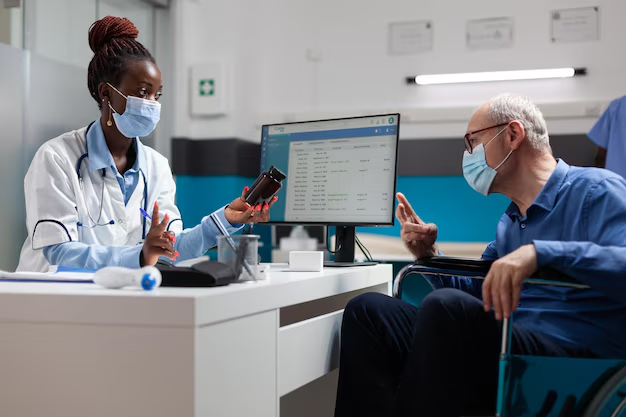Navigating Urgent Care Without Insurance: What You Need to Know
In a perfect world, everyone would have access to affordable healthcare coverage. However, many individuals find themselves without insurance for various reasons, whether it's due to a job change, personal choice, or financial constraints. If you find yourself needing urgent medical care without insurance, it can be a daunting situation. Can you still visit urgent care centers? What are your options, and how much will it cost? This guide explores these questions and more, offering a comprehensive look at accessing urgent care services without insurance.
Urgent Care and Insurance: The Basics
Urgent care facilities provide immediate care for non-life-threatening conditions. These centers often serve as a bridge between emergency room visits and primary care appointments. But what if you don't have health insurance? The first thing to know is yes, you can generally go to urgent care without insurance. However, understanding the costs, payment options, and your rights as a patient is crucial.
What to Expect at Urgent Care Without Insurance
Without insurance, you're responsible for the entire cost of the visit. Prices can vary widely depending on the facility, location, and services needed. However, many urgent care centers have flexible payment options and may offer discounts for uninsured patients. Here are some typical steps and terms to be aware of:
- Registration and Triage: Upon arrival, you'll register and provide your medical history. Even without insurance, it's essential to bring an ID.
- Service Costs: The fees can range significantly, but many centers have a set fee for a basic visit. Additional charges may be for tests or procedures.
- Payment Options: Inquire about their pricing upfront and ask if they offer discounts or payment plans for those paying out-of-pocket.
Understanding Costs and Financial Considerations
Typical Fees Involved
While costs can vary, here is a glance at what you might expect:
- Consultation Fee: This could be a flat rate or vary based on treatment complexity.
- Testing and Procedures: Lab work, X-rays, or other diagnostic tests come at extra cost.
- Medication: Prescriptions are usually an additional expense.
Tips for Managing Costs
Even without insurance, you can take steps to minimize your expenses:
- Ask for a Detailed Estimate: Most centers are willing to provide a cost breakdown upon request.
- Inquire About Discounts: Many centers offer a cash discount or a sliding scale based on income.
- Plan for Follow-Up Costs: Consider potential costs for follow-up visits or additional tests.
💡 Quick Tip: Always keep a record of your medical expenses. This documentation is helpful for managing payments and might be necessary for future insurance negotiations or tax purposes.
Evaluating Urgent Care Options
How to Choose the Right Urgent Care Center
Finding the right urgent care center without insurance involves considering factors beyond proximity:
- Reputation: Look for centers with positive reviews or recommendations.
- Pricing Transparency: Choose facilities that provide clear pricing information upfront.
- Payment Flexibility: Favor centers that offer flexible payment plans or discounts for uninsured patients.
The Importance of Preparing Ahead
Even if you're currently without insurance, planning for unexpected health needs can save time and stress:
- Identify Nearby Centers: Know the locations and operating hours of nearby urgent care centers.
- Understand Service Offerings: Be aware of what services are available at each location, as they can vary.
Health Conditions Suited for Urgent Care
When to Visit Urgent Care vs. Emergency Rooms
For uninsured individuals, knowing when to choose urgent care over a hospital emergency room can make a significant impact on costs. Urgent care is typically suitable for:
- Minor fractures
- Sprains or strains
- Simple infections
- Cuts requiring stitches
For life-threatening or severe conditions, such as chest pain or major trauma, it's essential to visit an emergency room, which nonetheless will result in higher costs.
Alternative Resources for Uninsured Patients
Communities often offer additional resources for those without insurance:
- Community Health Clinics: Often provide services on a sliding scale.
- Telemedicine Services: Some offer reduced rates for video consultations.
Beyond Urgent Care: Long-Term Health Solutions
Exploring Insurance Options
While dealing with an immediate medical need, it’s also a good time to explore long-term solutions:
- Government Programs: Investigate eligibility for programs like Medicaid.
- Marketplace Insurance: Consider enrolling in health insurance during open enrollment periods for future coverage.
Building a Sustainable Healthcare Plan
Establishing a sustainable health plan ensures resilience against future medical expenses:
- Emergency Fund: Consider establishing a savings fund for medical emergencies.
- Regular Check-Ups: Routine check-ups can prevent larger issues that might require urgent care.
Practical Steps Forward
Taking charge of your health without insurance requires informed decisions and proactive management. Use the following checklist to guide your journey:
🔍 Quick Summary
- Verify Urgent Care Services: Ensure the facility provides the care you need.
- Request Cost Estimates: Always ask for detailed cost information before treatment.
- Plan Future Coverage: Explore insurance options to prevent future concerns.
- Explore Alternative Resources: Utilize community health services and telemedicine options.
Navigating healthcare without insurance is challenging, but understanding your options at urgent care centers empowers you to make informed decisions. By researching ahead and preparing financially, you can reduce stress and ensure access to necessary medical services when urgent situations arise. Empower yourself with knowledge, and you’ll be better equipped to manage healthcare needs without breaking the bank.

Related Topics
- a Affordable Car Insurance
- a Car Insurance Companies
- a Car Insurance Company
- a Cheap Car Insurance
- a Max Car Insurance
- Are Car Insurance Rates Going Up
- Are Electric Cars More Expensive To Insure
- Are Health Care Insurance Premiums Tax Deductible
- Are Hybrid Cars More Expensive To Insure
- Are Insurance Premiums Tax Deductible For Obama Care
